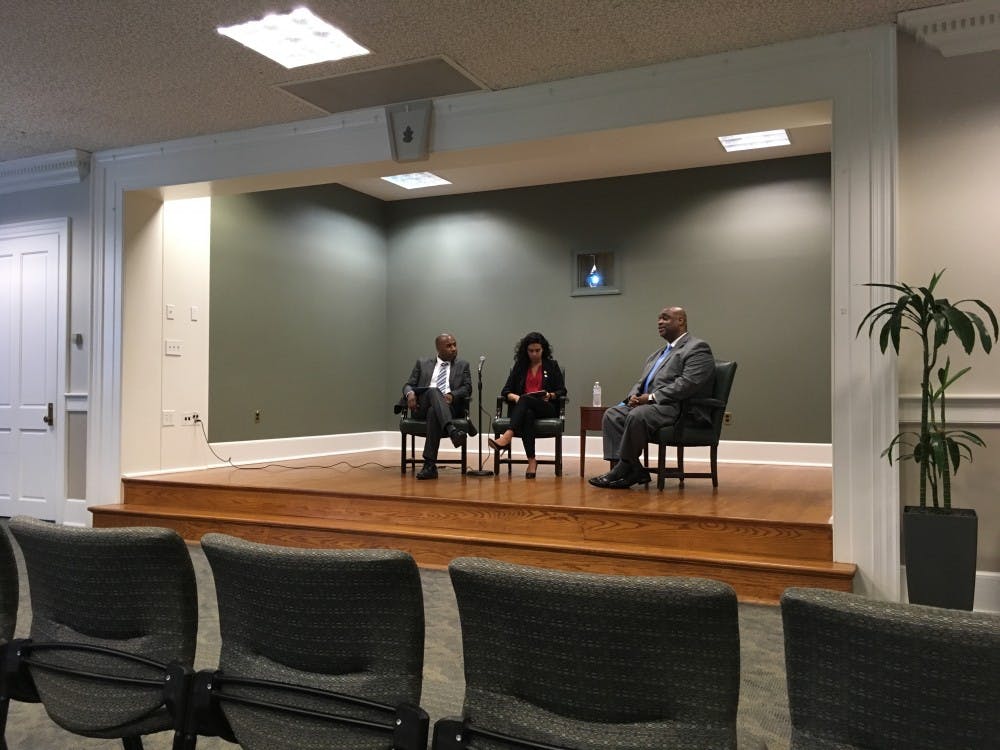Two finalists for the vacant UNC police chief position were on campus Tuesday morning for a question and answer session, as part of the University’s formal hiring process.
David Perry began his law enforcement career in Albany, Georgia — moving from an investigator role to a position in the drug unit — and was appointed chief of police at Albany State University, his alma matter, at age 26.
He accepted the police chief position at Florida State University in 2006, and immediately prior to that was deputy chief at Clemson University. In total he has nearly 25 years of law enforcement, and specializes in higher education settings.
“There’s a time to be the police,” Perry said. “That’s to be community oriented, provide information, be a partner. But then there's also a time to be the po-lice, and that's when you have to go out and enforce the laws, hold people accountable. You have to actually do the job of enforcement, or there’s no real fear of reprisal.”
The FSU police force is similar in size to that of UNC, with 67 sworn officers. Like other candidates for the job, Perry has managed large-scale operations: citing events that saw over 80,000 strong.
He was in charge when Jameis Winston, the FSU-turned-NFL quarterback, was accused but never charged for rape. Perry was criticized by the press at the time and was asked about the experience on Tuesday.
“Our officers had a limited role in dealing with the victim. Ultimately, it was turned over to the Tallahassee police department for review,” he said. “There were lots of lessons learned. I can't say the university did everything right, but I can tell you that we take sexual assault very seriously.”
Perry said he amended policies following the Winston incident, making it mandatory to assign two investigators to every sexual assault case that came through the department.
Communications professor Lawrence Grossberg asked Perry how the police could be expected to investigate complaints and discipline their own when a “significant trust gap” exists between parts of the University community and the force.



